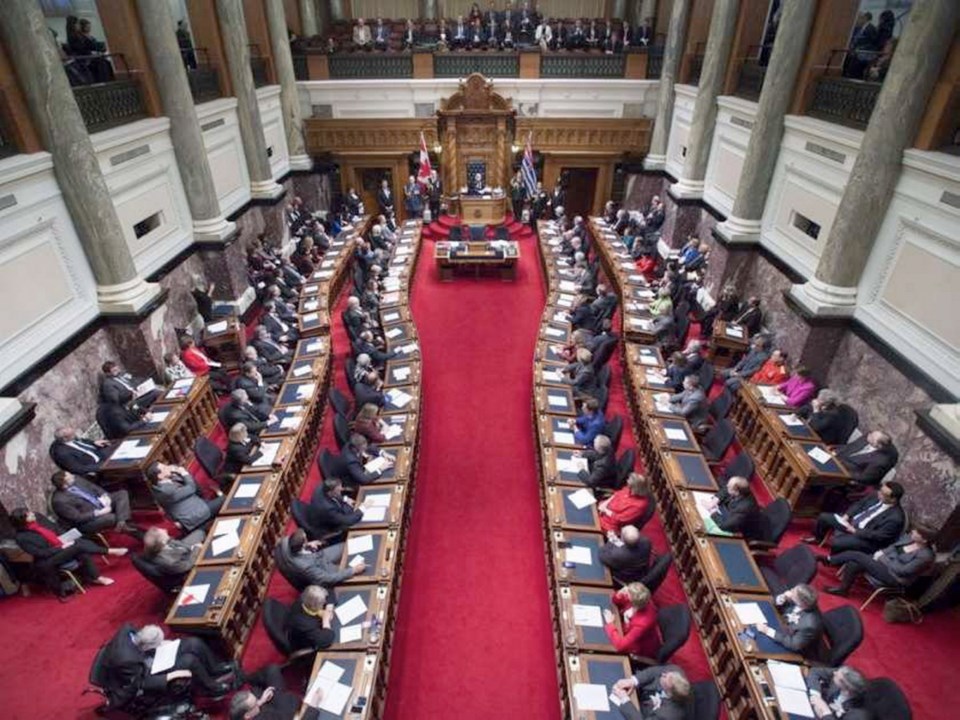I want to add my support to those individuals and groups that have endorsed the proportional-representation option in the electoral-reform referendum in British Columbia.
Under our current first-past-the-post — or “winner-take-all” — voting system, the party with the most seats can form a government even if it received a minority of the popular vote. That means, in effect, that political parties win 100 per cent of governing power, even if they received only 40 per cent or less of the vote. Thus 60-plus per cent of votes are disregarded, an outcome that can foster resentment and alienation.
People often express to me their astonishment over the U.S. voting system with its anti-democratic, antiquated electoral college that enabled the current president to win despite winning 2.8 million fewer votes than his rival. Isn’t our own FPTP, winner-take-all voting system similarly antiquated?
Think of how our federal Conservatives in 1988, with 43 per cent of the popular vote, formed a “majority” government and then rammed the Free Trade Agreement through Parliament, despite being opposed by parties supported by 57 per cent of the population. In a different FPTP twist, here in B.C., think of how the Liberals won 58 per cent of the vote in 2001 — a majority to be sure — yet they gained every legislative seat except two because of FPTP. This left the province with no official opposition for four years.
Such results could happen again under the old system. This topic should not be a partisan one — although regrettably it has become so — because all the B.C. parties have suffered unjustly under the FPTP system (such as the B.C. Liberals in 1996). The No side campaign appears to be comprised mostly of negative attacks on PR, as though it lacked anything positive to defend in the status quo.
The main change, which is found in all three PR options on our ballots, is that the percentage of votes should bring the percentage of seats. It is basic common sense, and the bedrock principle is sound. That is why about 90 other democracies in the world use PR, including Commonwealth entities such as Australia, New Zealand, Ireland, Scotland and Wales.
The “No to PR” campaign slogan hails FPTP as “simple, stable and successful.” Where is any mention of democracy there? Too often, the most “simple” and “stable” systems are autocracies.
And “successful” for whom, exactly? The majority of voters, or for those such as the No side who condescendingly — and wrongly — assert that PR is “too complex and confusing,” and resort to video ads of goose-stepping soldiers to confuse and scare B.C. voters? This last outcome would be prevented by the PR rule that fringe parties must gain at least five per cent of the vote, while their combined total is now usually less than one per cent. In fact, the greater inclusivity of the PR system might assist in reconciliation with our Indigenous Peoples.
I worry about the long-term effects of FPTP’s winner-take-all politics on our young people and future generations. If, having voted with a majority, their votes are then disregarded as a result of our FPTP system creating “false majority” governments, they will believe that their votes are wasted. They might understandably conclude they are in effect disenfranchised, and wonder: Why bother to vote at all?
Let us learn about different electoral systems and refuse patronizing claims that these are “too complex” for us to understand. Trustworthy information is available in the Elections B.C. booklets and website. The four options in the referendum are also explained in your ballot package. Moreover, if voters do not like how a new PR system works out in practice, they can vote to reverse it in the second B.C. referendum, so you can “try it before you buy it.”
I will be voting for proportional representation. It is a step on Canada’s path to political maturity and an effective step toward a more fair, inclusive and accountable government.
Rev. Steven Epperson has been minister of the Unitarian Church of Vancouver since 2002. Advocacy for the practice of “the democratic process within our congregations and in society at large” has been a bedrock principle of the Unitarian religious tradition throughout its 500-year-long history.



